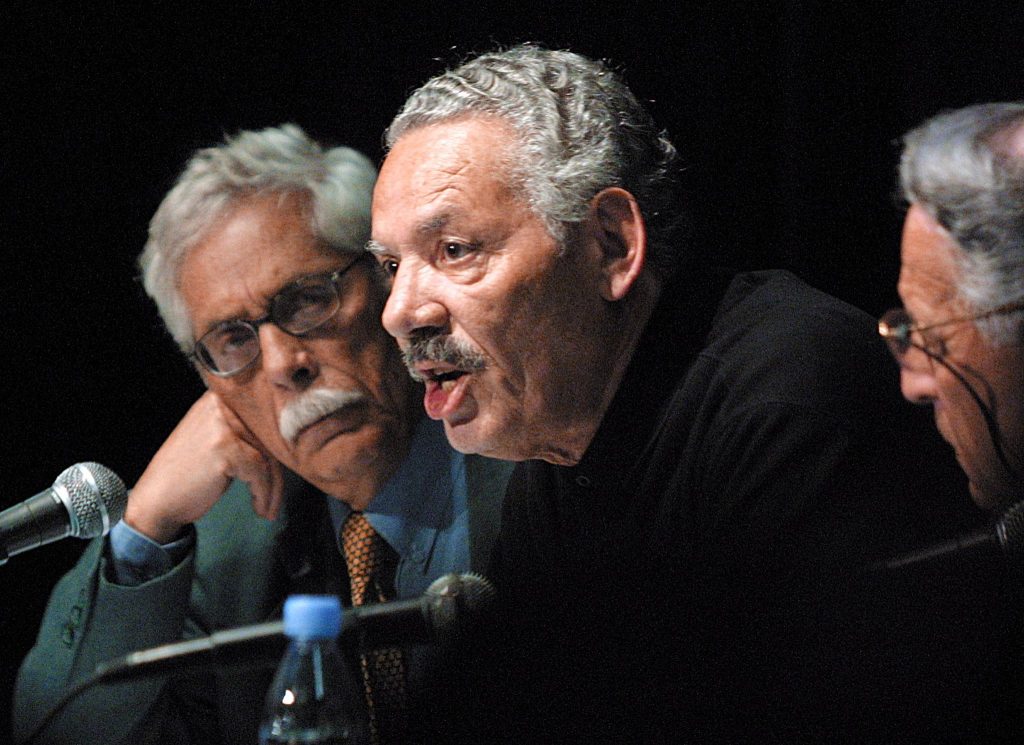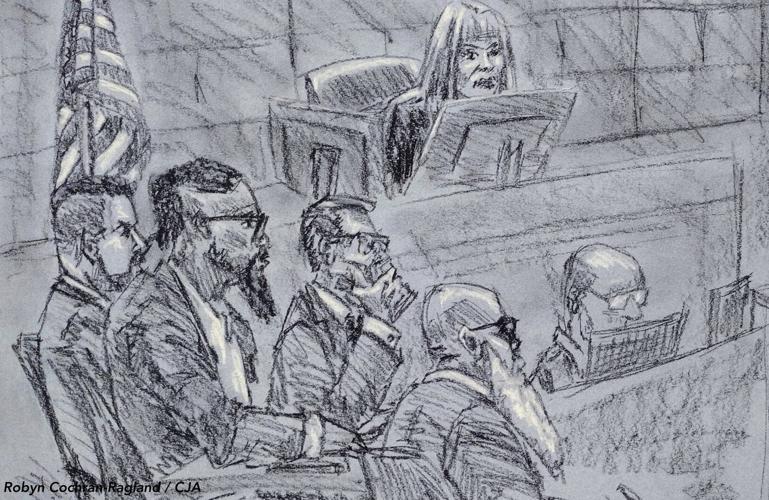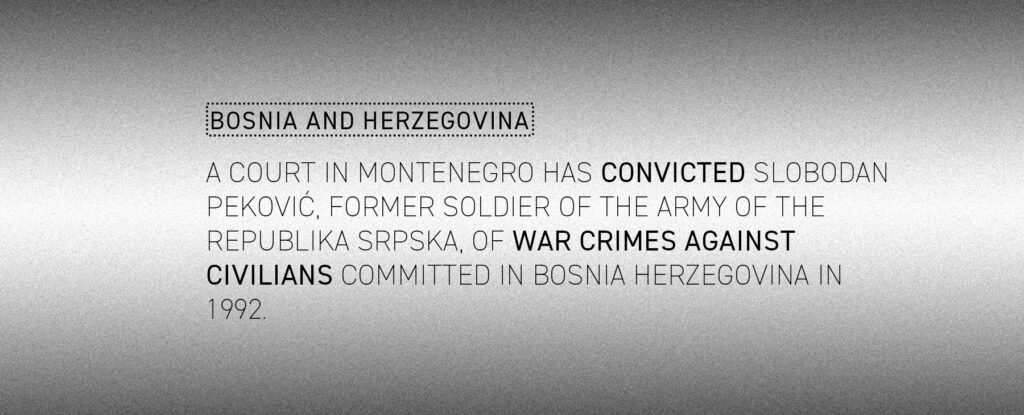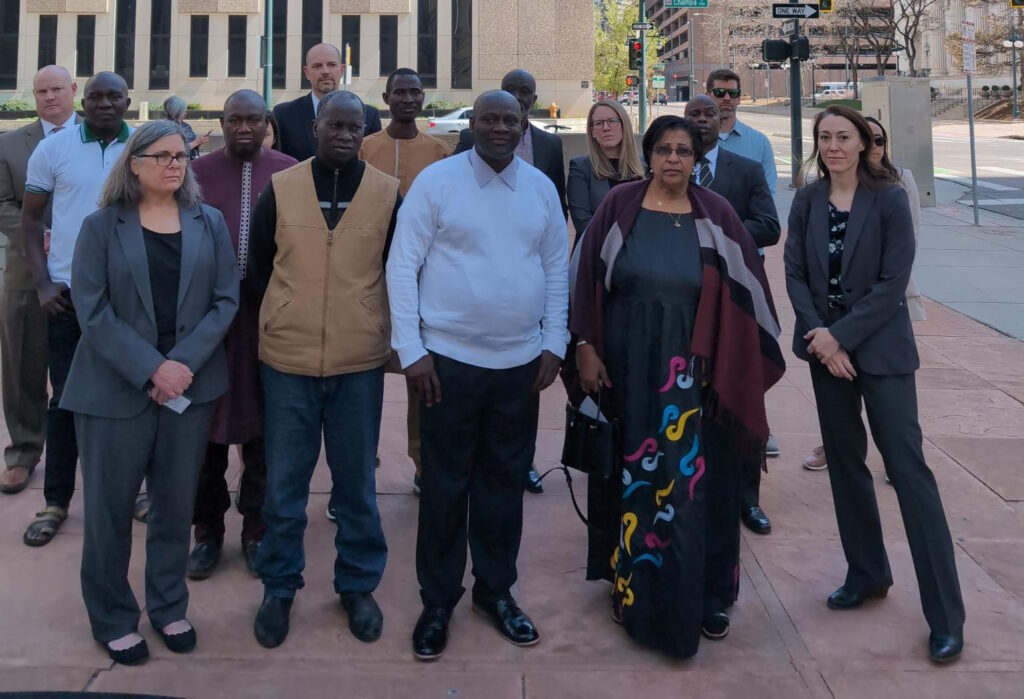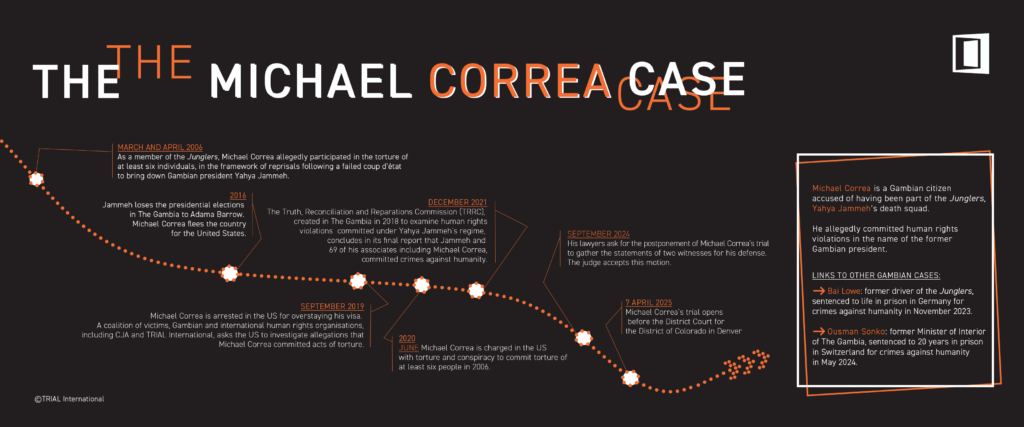Case of Nour-Eddine Mihoubi: severe and multiple human rights violations
Introduction
TRIAL lodged an individual complaint before the United Nations Human Rights Committee on behalf of Mrs.Rabiha Mihoubi in March 2009. She acts in the name of her son, Nour-Eddine Mihoubi, who was kidnapped January 27, 1993 in Bou Saâda and has been missing since. He disappeared during a widespread campaign of forced disappearances in Algeria between 1992 and 1998.
During the afternoon of January 27, 1993, Nour-Eddine Mihoubi was with his brother, Hocine Mihoubi, at his home when they were arbitrarily arrested by members of the Algerian police. Hocine was released the next day but Nour-Eddine remained in custody. His family never saw him again.
Despite Rahiba Mihoubi’s repeated pleas for information and the fact that the assistant prosecutor of Bou Saâda explicitly recognised that the local police force had arrested Nour-Eddine, the Algerian authorities have refused to provide any information on him.
Testimony from former cellmates enabled the Mihoubi family to piece together part of their son’s fate. It seems that Nour-Eddine was detained at the Bou Saâda jail for eleven days before being transferred to a jail in Alger and then to the infamous Châteauneuf detention centre. According to these witnesses, Nour-Eddine was often abused while at Châteauneuf and this torture led to severe health problems.
In her complaint before the UN Human Rights Committee, Mrs. Rahiba Mihoubirequests that her son be recognized as a victims of forced disappearance and that Algeria be found in violation of the rights to life; not to be subjected to torture or cruel, inhuman or degrading treatment; to liberty and security of the person; to be treated with humanity and dignity while in detention; to recognition as a person before the law and to an effective remedy when such rights are violated (articles 6 § 1, 7, 9 §§ 1, 2, 3 et 4, 10 § 1, 16, and 2 § 3 of the International Covenant on Civil and Political Rights) in regards to its treatment of Nour-Eddine Mihoubi.
Furthermore, the Committee is asked to recognize the Algerian authorities’ actions towards Rahiba Mihoubi and her family as violations of the rights to be free from cruel, inhuman or degrading treatment and to an effective remedy when such rights are violated (articles 7 and 2 § 3 of the Covenant) considering the psychological pain and suffering endured by the author and her family during the years of uncertainty since the arrest of her husband and son.
The author also asks that an investigation be initiated into the alleged violations and that the responsible parties be brought to justice.
The proceedings are currently underway before the United Nations Human Rights Committee.
The Decision
In October 2013, the Human Rights Committee communicated its decision (in French only), called “views” by the UN.
The Committee held that Algeria violated Articles 6, 7, 9, 10 and 16 of the International Covenant on Civil and Political Rights, taken alone and in conjunction with Article 2§3 of the Covenant, with regards to Mr. Nour-Eddine Mihoubi. The Committee also held that Algeria violated Article 7 of the ICCPR, taken alone and in conjunction with Article 2§3, with regards to the victim’s family.
The Committee requested Algeria to conduct a deep and rigorous investigation into the disappearance of Mr. Nour-Eddine Mihoubi, to provide his family with detailed information concerning the results of its investigation, to free him immediately if he is still being secretly detained or, if he is deceased, to return his mortal remains to his family. Moreover, the Committee insisted on Algeria’s obligation to indict, try and sanction those responsible for the violations committed. Algeria was also required to pay an adequate compensation to the family of the victim for the violations endured and, if still alive, to the victim himself.
Algeria is also required to ensure the effectiveness of its judicial system, in particular regarding the victims of torture, extrajudicial executions and enforced disappearances, and take action in order to avoid the repetition of such violations.
General Context
These events occurred during the Algerian civil war during which thousands of civilians were kidnapped. It is reported that between 7,000 and 20,000 people were disappeared by the Algerian police forces between 1992 and 1998. Secret detentions during long periods were a common instrument of repression in Algeria during this time. The use of torture was also very prevalent and often led to deaths of detainees. The members of the police forces acted with complete impunity. Since the implementation of the Charter for National Peace and Reconciliation in 2006, these forces have officially received amnesty for acts committed during the civil war. It is now illegal to bring a complaint for crimes or exactions like the ones Nour-Eddine Mihoubi suffered.
Extended and incommunicado detentions were a common tool of repression in Algeria during the civil war. The use of torture was also widespread and often led to the deaths of prisoners in custody. In this context, it is clear that Algerian authorities violated the fundamental human rights of the Mihoubi family.


